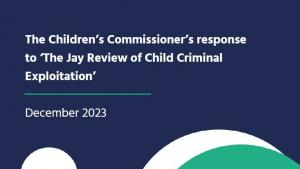The United Nations Committee on the Rights of the Child last reviewed the UK’s progress in 2016, and will do so again in 2021. This report is based on engagement with children and young people by Participation staff in four UK Children’s Commissioners offices (England, Northern Ireland (NI), Scotland & Wales). It aims to provide the Committee with children and young people’s voices about their experiences on the delivery of their rights on a day to day basis. Its key objective is to influence the UN Committee on the Rights of the Child list of issues prior to the UK’s report (LOIPR). The four Commissioners will deliver a separate but supporting report, assessing how the UK Government and devolved administrations have progressed towards giving every child the opportunities and protections enshrined in the UNCRC.
During the Covid pandemic there has been a welcome shift of focus onto the needs of vulnerable children, with a recognition of the importance of schools remaining open to promote children’s wellbeing, safeguarding them from harm and avoiding the widening of the gap in attainment between disadvantaged pupils and their peers. Prior to the pandemic, there were also some positive developments. There has been increased funding for mental health services and plans are in place to improve access to mental health services in schools. There are proposals to introduce new guidance to support families and uphold children’s rights when they are educated at home, new guidance on reducing restraint in special schools in England and plans for legislation to protect children from online harms. The Government has also committed to introducing Healthy Relationships and Sex Education and introduced legislation that acknowledges the impact of Domestic Abuse on children. Additionally, the Department for Education has developed a template for Child Rights Impact Assessments, and institutions are increasingly ensuring they have children’s panels in order to make sure decisions are informed by the impact on children. However, this progress still needs to be seen relative to the ongoing challenges we currently face and the changes that are actually needed to improve children’s lives right now, for example, a change to the large disparity in spending between children’s and adult mental health services.





